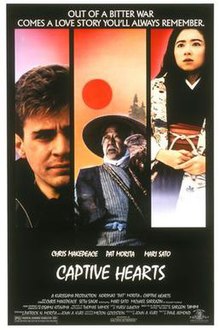
Akio Morita was a Japanese entrepreneur and co-founder of Sony along with Masaru Ibuka.

Noriyuki "Pat" Morita was an American actor and comedian. He began his career as a stand-up comedian, before becoming known to television audiences for his recurring role as diner owner Matsuo "Arnold" Takahashi on the sitcom series Happy Days (1975-83). He was subsequently nominated for an Academy Award for Best Supporting Actor for his portrayal of martial arts mentor Mr. Miyagi in The Karate Kid (1984), which would be the first of a media franchise in which Morita was the central player.
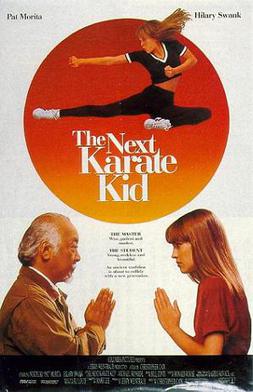
The Next Karate Kid is a 1994 American martial arts drama film directed by Christopher Cain, produced by Jerry Weintraub, and written by Mark Lee. It serves as the fourth installment in the Karate Kid franchise, following The Karate Kid Part III (1989). It stars Hilary Swank as Julie Pierce, and Pat Morita reprising his role as Mr. Miyagi from the first three films, with Constance Towers, Chris Conrad, Michael Cavalieri, Walton Goggins, and Michael Ironside in supporting roles. Bill Conti, the composer of the previous films, returned to score the fourth. It is the first film in the series not to feature Ralph Macchio in the lead role as Daniel LaRusso.

Nariyoshi Miyagi, better known as Mr. Miyagi, is a fictional character portrayed by Pat Morita who appeared in The Karate Kid (1984), The Karate Kid Part II (1986), The Karate Kid Part III (1989), and The Next Karate Kid (1994). A wise, Okinawan-born karate master, he mentors Daniel LaRusso in the first three films (1984–1989) and Julie Pierce in the fourth one (1994).

The Karate Kid Part II is a 1986 American martial arts drama film written by Robert Mark Kamen and directed by John G. Avildsen. It is the second installment in the Karate Kid franchise and the sequel to the 1984 film The Karate Kid, starring Ralph Macchio and Pat Morita. The Karate Kid Part II follows Daniel LaRusso (Macchio), who accompanies his karate teacher Mr. Miyagi (Morita) to see his dying father in Okinawa, only to encounter an old friend-turned-rival with a long-harbored grudge against Miyagi.

The Raid on Deerfield, also known as the Deerfield Massacre, occurred during Queen Anne's War on February 29, 1704, when French and Native American raiders under the command of Jean-Baptiste Hertel de Rouville attacked the English colonial settlement of Deerfield, Massachusetts Bay, just before dawn. They burned parts of the town and killed 47 colonists. The raiders left with 112 colonists as captives, whom they took overland the nearly 300 miles to Montreal; some died or were killed along the way because they were unable to keep up. Roughly 60 colonists were later ransomed by their associates, while others were adopted by Mohawk families at Kahnawake and became assimilated into the tribe. In this period, English colonists and their Indian allies were involved in similar raids against French villages along the northern area between the spheres of influence.
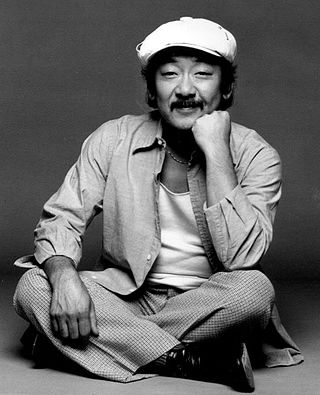
Mr. T and Tina is an American sitcom and a spin-off of Welcome Back, Kotter starring Pat Morita and Susan Blanchard that aired for five episodes on ABC from September 25 to October 30, 1976. It is one of the first television shows to feature a predominantly Asian-American cast. The series was a ratings flop and was cancelled after only five aired episodes.
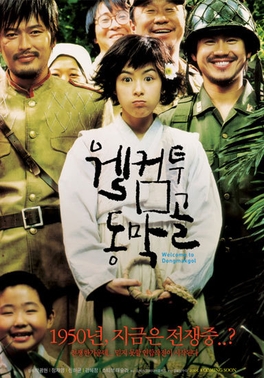
Welcome to Dongmakgol, also known as Battle Ground 625 (UK), is a 2005 South Korean war comedy-drama film. Based on the same-titled long-running stage play by filmmaker/playwright Jang Jin, Park Kwang-hyun's debut film was a commercial and critical success.
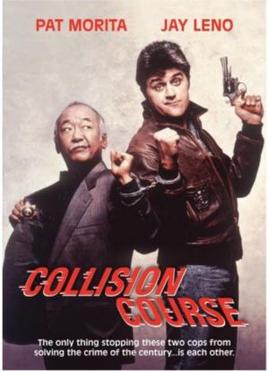
Collision Course is a 1989 action comedy film starring Jay Leno as a Detroit police officer and Pat Morita as a Japanese officer forced to work together to recover a Japanese turbocharger stolen by a thief played by Chris Sarandon. It was directed by Lewis Teague and unreleased in the U.S. until 1992, when it debuted on home video.

Hearts of the World is a 1918 American silent melodrama and World War I propaganda film written, produced and directed by D. W. Griffith. In an effort to change the American public's neutral stance regarding the war, the British government contacted Griffith due to his stature and reputation for dramatic filmmaking.

Ohara is an American police procedural television series that first aired on the ABC television network from January 17, 1987, until May 7, 1988, starring Pat Morita in the title role of Lt. Ohara. Morita also co-created the series along with Michael Braveman and John A. Kuri. Kevin Conroy, Jon Polito, Rachel Ticotin, and Robert Clohessy also starred in supporting roles. The series was notable for being one of the first television series to have a Japanese-American actor in the leading role.
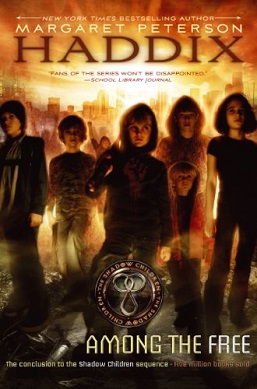
Among the Free is a 2006 young adult science fiction novel by American writer Margaret Peterson Haddix, about a time in which drastic measures have been taken to quell overpopulation. It is the seventh and final book in the Shadow Children series.
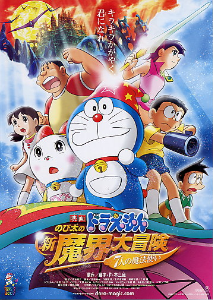
Doraemon: Nobita's New Great Adventure into the Underworld, also advertised as Doraemon the Movie 2007, is a 2007 Japanese animated science fantasy film. It is the 27th feature film of the Doraemon franchise. It is a retelling of the 1984 film Doraemon: Nobita's Great Adventure into the Underworld. It was the second highest grossing anime movie in 2007.

The Schenectady massacre was an attack against the colonial settlement of Schenectady in the English Province of New York on February 8, 1690. A raiding party of 114 French soldiers and militiamen, accompanied by 96 allied Mohawk and Algonquin warriors, attacked the unguarded community, destroying most of the homes, and killing or capturing most of its inhabitants. Sixty residents were killed, including 11 Black slaves. About 60 residents were spared, including 20 Mohawk.
The Battle of North Fork or the Battle of the North Fork of the Red River occurred on September 28, 1872, near McClellan Creek in Gray County, Texas, United States. A monument on that spot marks the site of the battle between the Comanche Indians under Kai-Wotche and Mow-way and a detachment of cavalry and scouts under U.S. Army Colonel Ranald S. Mackenzie. There was an accusation that the battle was really an attempt "to make a massacre," as during the height of battle some noncombatants were wounded while mixed in with the warriors.

The Prisoner is a 2009 six-part television miniseries based on the 1960s series. The series concerns a man who awakens in a mysterious, picturesque, but escape-proof village, and stars Jim Caviezel, Sir Ian McKellen, Ruth Wilson, and Hayley Atwell. It was co-produced by American cable channel AMC with British channel ITV, whose parent company holds the rights to the original series through ITV Studios. It received mixed reviews, with critics feeling that the remake was not as compelling as the original series.

Jonathan William Scott Hofstedt is an American actor. Known professionally as Jon Huertas, he is best known for his role as witch hunter Brad Alcerro in Sabrina the Teenage Witch, Sergeant Antonio 'Poke' Espera in HBO's Generation Kill, Joe Negroni in the film Why Do Fools Fall in Love, homicide detective Javier Esposito in Castle and Miguel Rivas in This Is Us.
Taro the Dragon Boy is a 1979 film adaptation of a famous Japanese folk tale, and the novel Taro, the Dragon Boy by Miyoko Matsutani. In 1966, Taro, the Son of Dragon with the original Japanese title of "Tatsu, no ko Taro", started as a puppet series on a Japanese television channel. In the late 1970s the anime television series Taro the Dragon Boy was shown on Doordarshan.
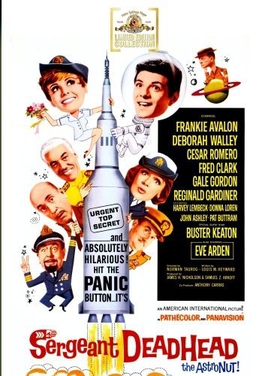
Sergeant Deadhead is a 1965 American musical comedy film directed by Norman Taurog and starring Frankie Avalon. It features many cast members who appeared in the Beach Party movies.

Kumiko is a fictional character portrayed by Tamlyn Tomita in the film The Karate Kid Part II (1986), and in the third season of the sequel series Cobra Kai (2021).
